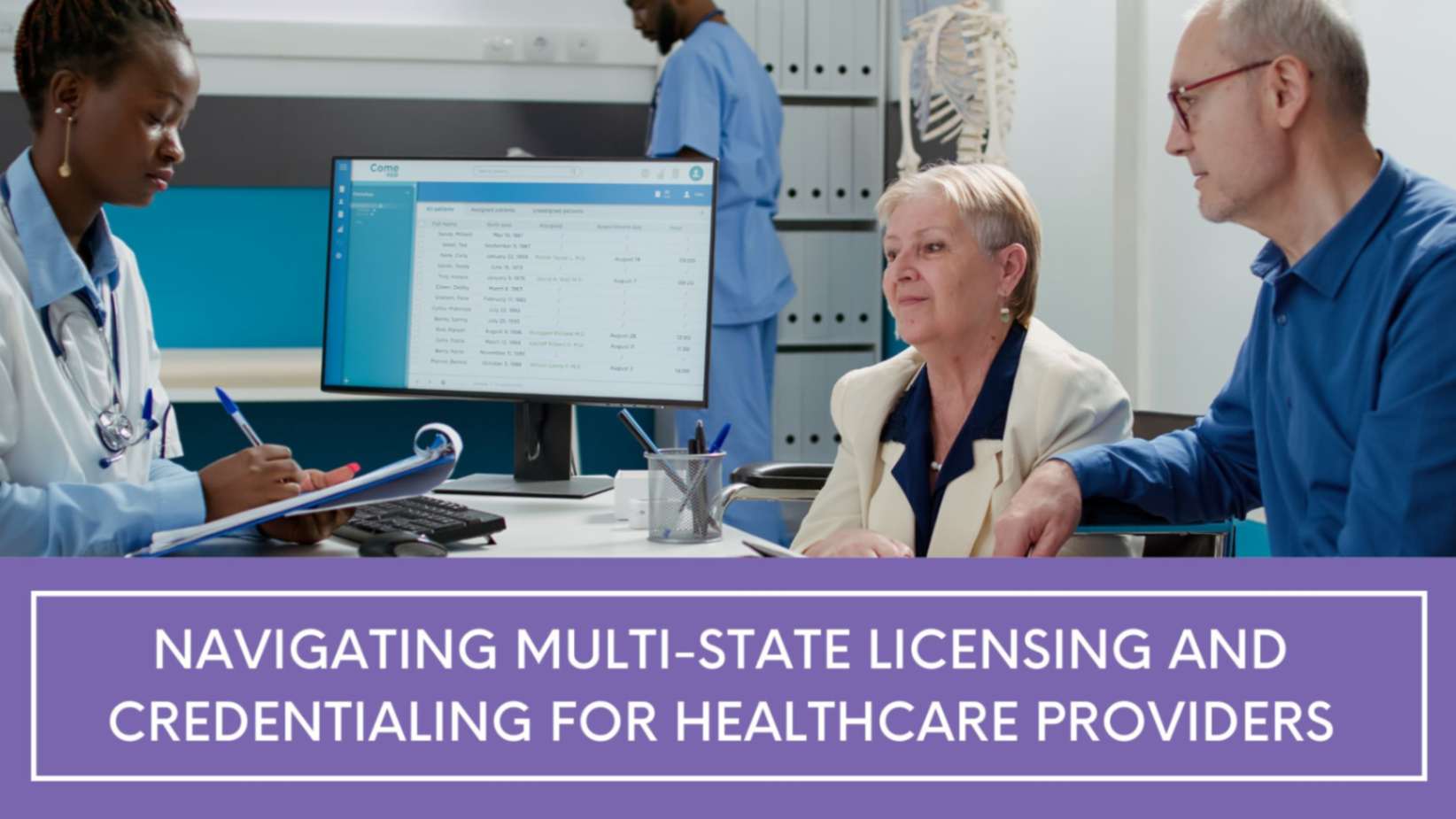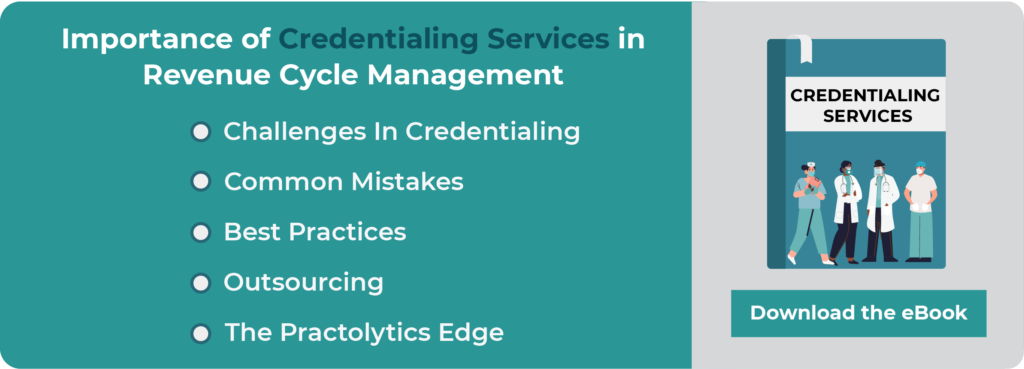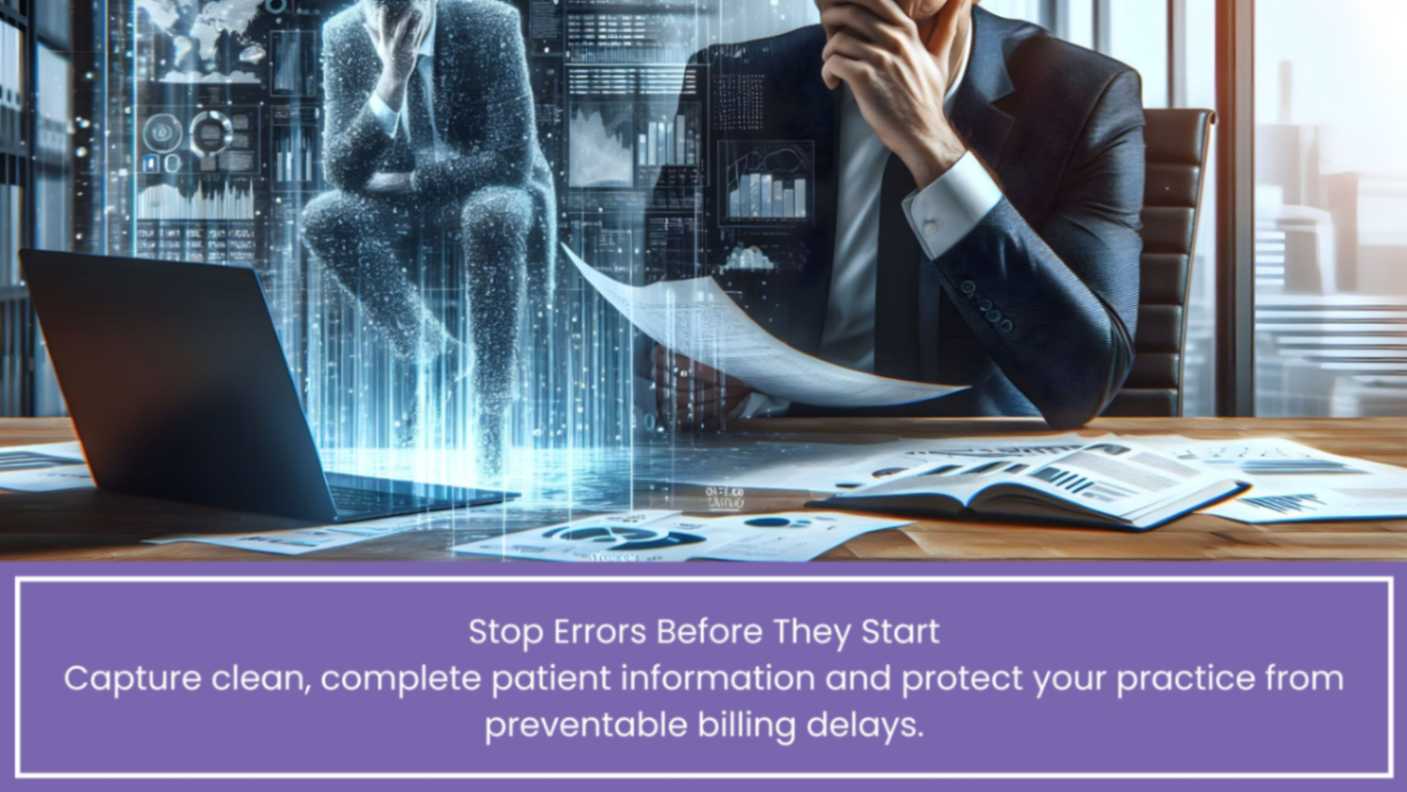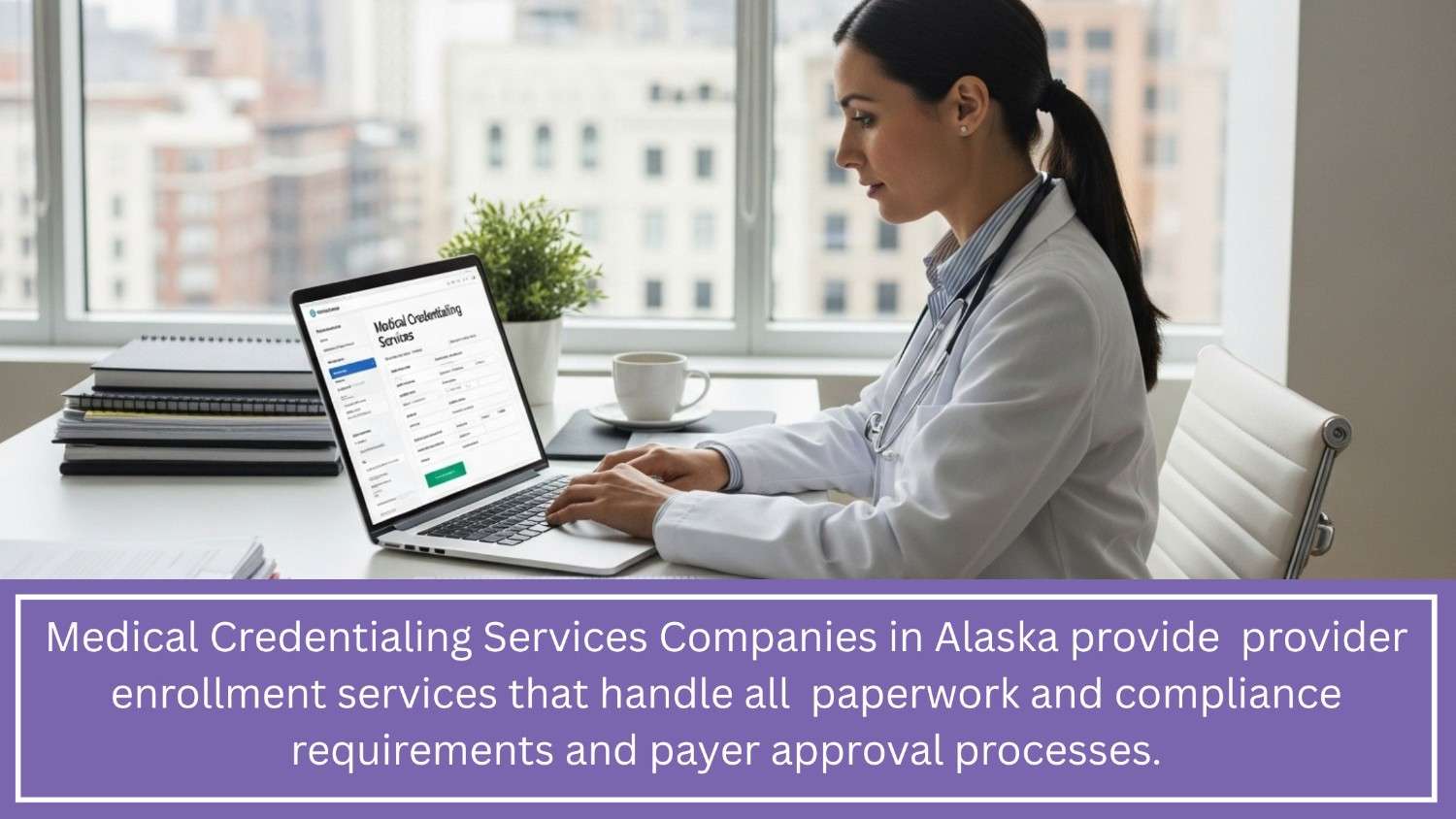Navigating Multi-State Licensing and Credentialing for Healthcare Providers
Providers are now practicing across multiple states. The rise of telemedicine, a lack of workers, and the need for specialized treatment are the causes of this. There are opportunities when expanding to new states. But, it also means navigating complex multi-state licensing and medical credentialing services. Compliance audits across jurisdictions is critical. It enables uninterrupted performance, decreases legal threats, and promises timely repayments.
Navigating Multi-state licensing and credentialing for healthcare providers pose a considerable challenge for healthcare practitioners. Smart strategies exist to conquer these challenges. Outsourcing Rcm to specialized firms streamlines the complex process, saving time and headaches. Practolytics offers expert solutions to simplify this crucial administrative task for medical professionals.
Table of Contents
Importance of Acquiring Several State Permits and Certifications
Providers intending to work across several states must acquire licenses and go through the credentialing process. The reasons for this are as follows:
- Compliance: Providers must meet each state’s regulatory requirements to avoid legal repercussions.
- Reimbursements: Healthcare Credentialing with payers ensures providers are eligible for claims submissions and payments.
- Patient Safety: Insurance Credentialing companies verifies provider qualifications, promoting quality care across all states.
- Operational Continuity: Proper licensing and credentialing prevent disruptions in service delivery.
Multi-state credentialing is a complex process. The intricacies of payer criteria and state-specific regulations make it a difficult undertaking.
Key Challenges in Multi-State Licensing and Credentialing
1.Diverse state requirements
Each state has its own medical board regulations, licensing criteria, and documentation requirements. These variations can create confusion and delays. It is especially for providers unfamiliar with state-specific rules.
Example: One state may require additional CME credits or a criminal background check. While the other may have different timelines for license renewals.
2.Time-Consuming Processes
Multi-state licensing can take months. This is due to backlogs, verifications, and approvals. Best medical Credentialing Companies with payers adds to the timeline. Each payer may have unique enrollment procedures.
Impact: Delays in getting licenses and credentials can postpone patient care and revenue.
3.Telemedicine-Specific Licensing
Additional challenges for telemedicine operators arise from the fact that not all states provide licensing reciprocity. The process is made more difficult in other places where separate telemedicine licenses are required.
Solution: Providers must stay updated on telemedicine laws. They should ensure compliance with state-specific telehealth regulations.
4.Data Management and Documentation
Managing the vast documentation for multi-state licensing and credentialing is challenging. Missing or incorrect documents can lead to rejections and delays.
Challenges include:
- Tracking different license renewal dates.
- Maintaining updated credentials and certifications.
- Ensuring accuracy in applications to avoid errors.
5.Payer-Specific Credentialing Requirements
Even with state licenses, providers must credential with multiple payers. Each has unique requirements. This involves repetitive document submissions and compliance checks.
Impact: Not meeting payer criteria can lead to denied claims and delayed reimbursements.
Strategies to Streamline Multi-State Licensing and Credentialing
1.Leverage Interstate Medical Licensure Compacts (IMLC)
The IMLC lets physicians get licenses in multiple states via a streamlined process. Eligible providers can apply for licensure in participating states via a single application.
Benefits:
- Faster licensing processes in compact states.
- Reduced administrative burdens.
Note: Providers must meet each state’s practice laws. But, the licensing process is now much simpler.
2.Centralize Credentialing Data
A centralized, digital repository for provider credentials and docs helps. It streamlines multi-state licensing and payer credentialing.
Best Practices:
- Use credentialing management software to store and track documents.
- Create an automated system for renewing licenses and updating user credentials.
- Verify that all records are accurate and current to reduce the necessity of redoing tasks.
3.Automate Licensing and Credentialing Workflows
Automation tools can handle repetitive tasks. This includes document submissions, status tracking, and renewal reminders. This reduces manual errors and speeds up the process.
Key Automations Include:
- Auto-filling applications with stored data.
- Tracking the status of licenses and payer credentials.
- Sending alerts for upcoming expirations and deadlines.
4.Outsource to Credentialing Experts
Partnering with medicaid credentialing experts like **Practolytics** helps healthcare providers. It offloads the admin work of multi-state licensing and payer enrollments.
The Value of Outsourcing:
- Expert guidance: Credentialing specialists understand state-specific requirements and can navigate complex regulations.
- Time Savings: Professionals handle document submissions, follow-ups, and renewals. Thus, freeing up providers to focus on patient care.
- Reduced Errors: Specialists ensure accurate applications, minimizing delays and rejections.
5.Be Aware of Regulatory Amendments
The constant transformation of healthcare regulations calls for continuous learning to ensure compliance. Keep yourself informed about state licensing conditions, telehealth guidelines, and payer policies. Regularly review updates to ensure compliance and optimal practice.
Solution: Stay ahead of changes; subscribe to regulatory newsletters and tap expert insights.
How Practolytics Simplifies Multi-State Licensing and Credentialing?
Our specialty at Practolytics lies in enhancing the licensing and credentialing processes for healthcare providers, empowering them to effectively manage the complexities of multi-state regulatory compliance. Our comprehensive services include:
- End-to-End Licensing Support: From application submission to follow-ups and renewals.
- Payer Credentialing and Enrollment: Swift payer enrollment leads to prompt reimbursements. Providers must register with all applicable insurers to avoid payment delays. Comprehensive participation streamlines the billing process, boosting practice efficiency and cash flow.
- Document Management and Automation: Centralizing provider data and automating renewals and updates.
- Providing Regulatory Compliance Expertise: Informing providers of modifications and ensuring persistent compliance. Partnering with us allows healthcare organizations to minimize their administrative duties. This enables them to accelerate licensing timelines. This outcome allows them to devote their attention to delivering excellent care.
Benefits of Streamlined Multi-State Licensing and Credentialing
- Faster Patient Access: Providers can deliver care more quickly in new states. This enhances access for patients.
- Financial Benefits: The acquisition of multi-state licenses brings about financial rewards, as it grants access to new markets and revenue streams, particularly in the telemedicine sector.
- Reduced Legal Risks: Compliance with state laws and payer requirements minimizes legal exposure.
- Operational Efficiency: Automation and expert support free up internal resources, improving overall efficiency.
- Improved Provider Experience: Streamlined processes reduce frustration and administrative burdens for providers.
Conclusion
Healthcare providers seeking to expand their reach can’t do so without multi-state licensing. To deliver care across state lines, they need to go through the credentialing process in each state. While the process is complex, strategic planning can simplify it. Automation and expert support can also make a significant difference. Using tools like the IMLC, centralizing data, providers can efficiently navigate multi-state credentialing. Outsourcing to specialists like Practolytics enables providers to focus on their primary mission. Their primary mission is to deliver exceptional patient care.
Ready to simplify your multi-state licensing and credentialing process? Get in touch with Practolytics right now. We will help you navigate challenges and open up new development opportunities.
ALSO READ – Charting the Future: Navigating 2024’s Healthcare Credentialing with Practolytics
Talk to Medical Billing Expert Today — Get a Free Demo Now!






